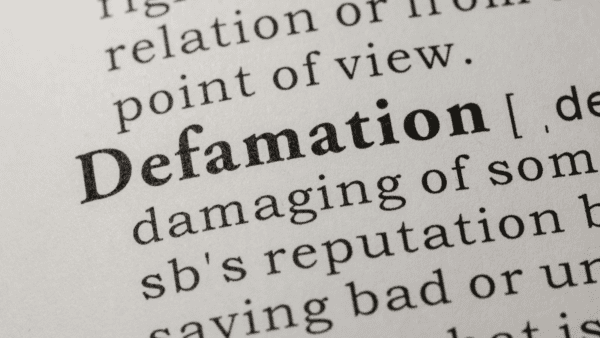Defamation of Character Explained

A statement that harms someone’s reputation is referred to as defamation of character. A person or entity that alleges damages due to defamation of character may file a lawsuit against the person or entity who made the statement.
Types of Defamation
There are two types of defamation. Libel applies when the statement was written. Slander applies when the statement is spoken. You can Click Here to understand which type of defamation applies to your situation. You can seek assistance from a lawyer to clarify the specifics of your case. Remember, defamation is not considered a criminal act. Instead, it is a tort.
Requirements To Prove Defamation
Different states have different laws concerning defamation, but the general principles are the same. To be considered defamation, a statement must be false, injurious, published, and unprivileged.
The statement may be spoken, pictured, written, or gestured, but written statements carry more weight and are considered more damaging because they are more permanent than spoken statements. For the statement to be considered published, a third party must have seen or heard the statement. To be considered false, the statement must be able to be proven objectively false. For this reason, few opinions can be considered defamation because they can not be objectively proven false.
For a statement to be injurious, the victim must be able to demonstrate how the statement resulted in damages. For example, a person losing their job because of a defamatory statement could be considered injurious. Finally, certain types of speech, such as witness testimony in a court of law, are considered privileged and can not be considered defamation, even if the statements are false.
Defamation and Public Figures
Because the public is guaranteed a constitutional right to criticize elected officials in the United States, public officials are provided the least protection against defamation. For an elected official to prove defamation, the official must meet all of the normal criteria and also prove that the accused acted with actual malice.
Defamation Example
n 2019, HBO debuted a documentary about accusations of child molestation made against pop star Michael Jackson, by Wade Robson and James Safechuck. The late singer’s longtime attorney, John Branca, has suggested the accusations are libelous in nature but that Jackson’s death has precluded what otherwise might have been a successful lawsuit against the two men. To be successful, such a suit would need to prove that the statements were false and resulted in damage to Jackson’s reputation.
Whenever a person makes a false statement that is damaging to another party, it may be considered defamation of character if it meets all of the criteria. Defamation is not a crime, but it is a tort that may result in civil penalties









